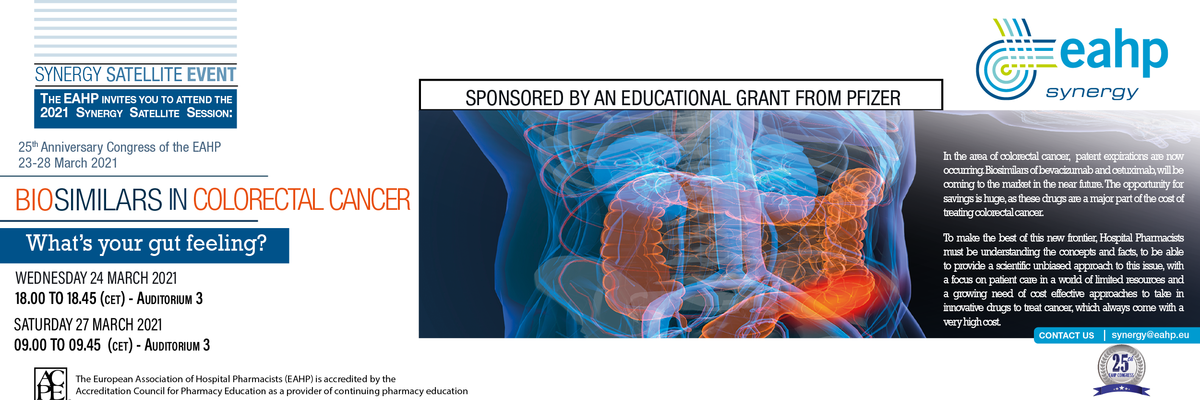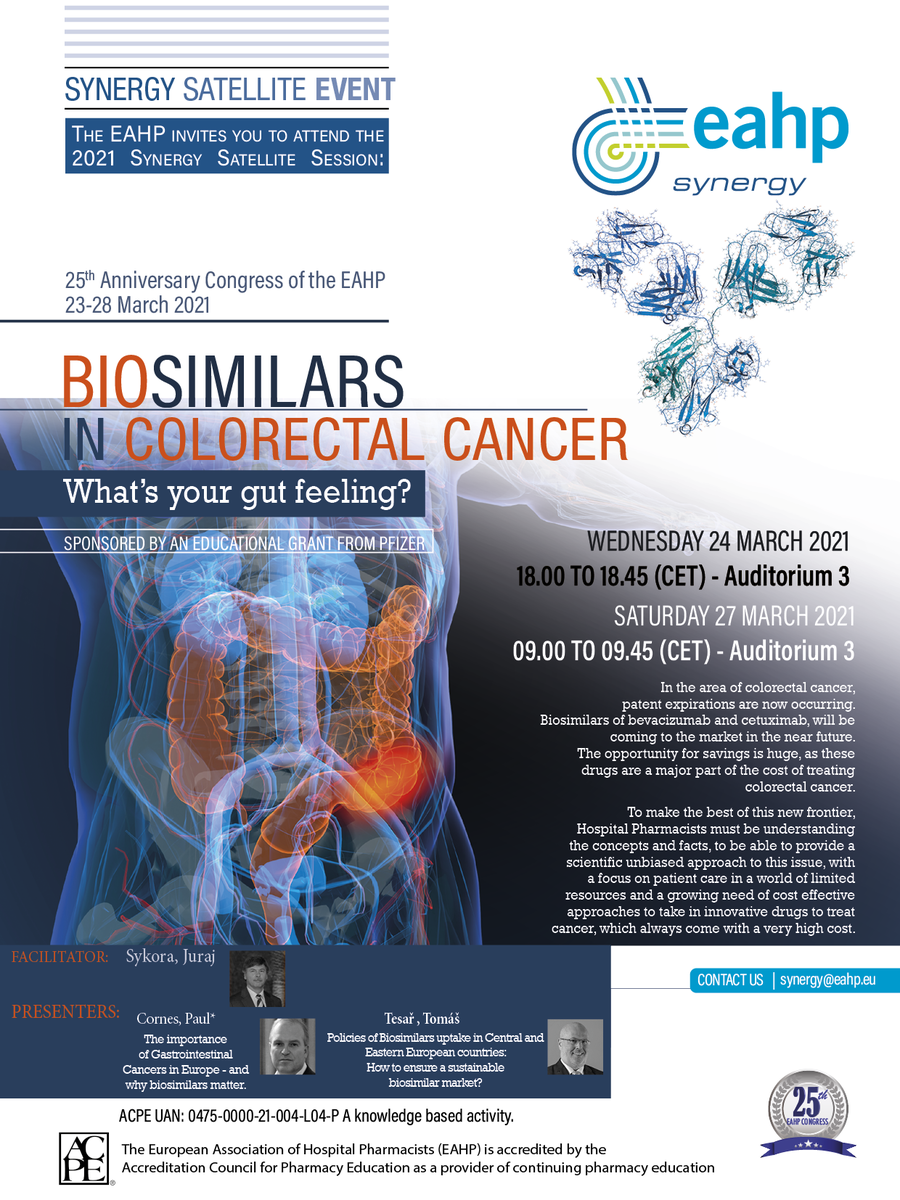
Linked to EAHP Statements
Section 1 – Introductory Statements and Governance: Statements 1.4, 1.6
Section 2 – Selection, Procurement and Distribution: Statements 2.1, 2.3, 2.6
Section 4 – Clinical Pharmacy Services: Statement 4.6
Section 5 – Patient Safety and Quality Assurance: Statements 5.6, 5.11
Section 6 – Education and Research: Statement 6.4
ACPE UAN: 0475-0000-21-004-L04-P. A knowledge-based activity.
Abstract
 For many years, biological drugs have not been subject to the competition of generics. There are good reasons for this, as complex biological molecules cannot be shown to be bioequivalent based solely on analytical data and pharmacokinetic studies.
For many years, biological drugs have not been subject to the competition of generics. There are good reasons for this, as complex biological molecules cannot be shown to be bioequivalent based solely on analytical data and pharmacokinetic studies.
Drug regulatory authorities acknowledged this, and the European Union (EU) pioneered the concept of biosimilars with detailed guidance to show bioequivalence of biological drugs. This concept has been applied for several medicinal products, such as growth hormone, epoetin or granulocyte colony-stimulating factors, and more recently, monoclonal antibodies (infliximab) and a fusion protein (etanercept), as well as for major cancer drugs such as trastuzumab and rituximab.
Also, in the area of colorectal cancer, patent expirations are now occurring. Biosimilars of bevacizumab and cetuximab will be coming to the market soon. The opportunity for savings is huge, as these drugs are a major part of the cost of treating colorectal cancer. As always, the key issues will be the usual misconceptions about biosimilars and the extrapolation of data from small scale biosimilar clinical trials in a limited disease setting. This will likely be a highly charged discussion considering the strong activism of colorectal cancer patients.
To make the best of this new frontier, Hospital Pharmacists must understand the concepts and facts, to be able to provide a scientific unbiased approach to this issue, with a focus on patient care in a world of limited resources and a growing need of cost-effective approaches to take in innovative drugs to treat cancer, which always come with a very high cost.
The implementation of biosimilars will also depend on the involvement of all health professionals and other stakeholders (patients, management, etc.), and pharmacists will be the main drivers of this process.
Learning objectives
At the end of the synergy session, participants should be able to:
• acquire new understanding of the key facts which support biosimilar approval in the EU as applied to colorectal cancer therapy;
• advise how to implement biosimilars of monoclonal antibodies used in colorectal cancer.
Educational need addressed
Hospital pharmacists should understand how to be fully involved in all aspects of the implementation process of the use of new biosimilars in the treatment of colorectal cancer in daily clinical practice.
Keywords: biological drugs, biosimilars, colorectal cancer, anticancer drugs, monoclonal antibodies, bevacizumab, cetuximab, oncology.
ACPE information:
The Synergy Satellite is accredited by ACPE and in order to receive your ACPE accreditation points, what you have learnt during this session will be assessed.
During the session you will have to answer the self-assessment questions by scanning the QR code with your phone or clicking on the link available in the chat.

























 For many years, biological drugs have not been subject to the competition of generics. There are good reasons for this, as complex biological molecules cannot be shown to be bioequivalent based solely on analytical data and pharmacokinetic studies.
For many years, biological drugs have not been subject to the competition of generics. There are good reasons for this, as complex biological molecules cannot be shown to be bioequivalent based solely on analytical data and pharmacokinetic studies.